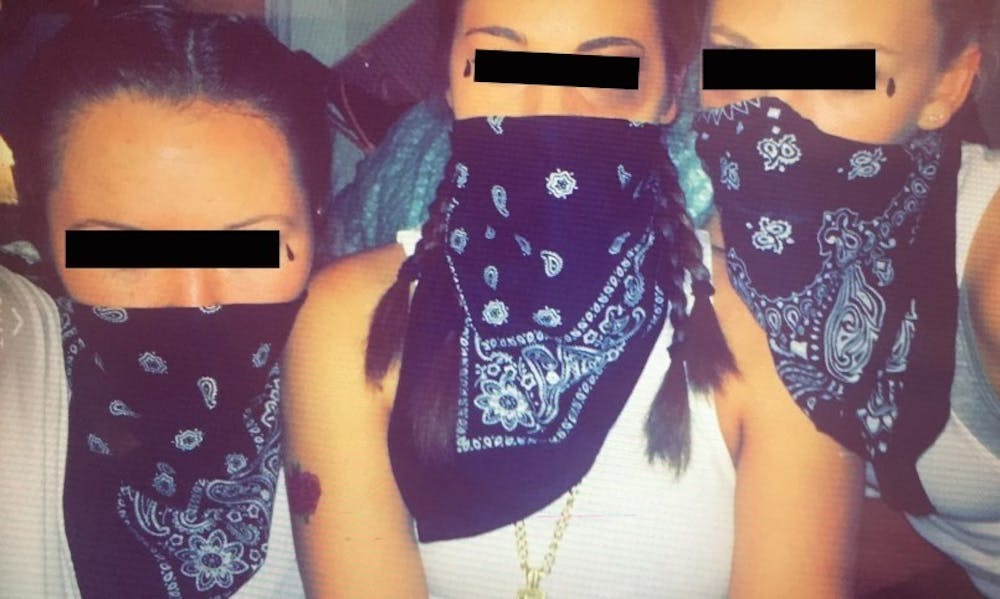Staff editorials are written by the editorial board and intended to represent the stance of the ENN staff, who have an opportunity to offer feedback on each topic. Staff editorials and other opinions content are separate from news coverage.
What may seem like an innocent and fun party theme can turn into an excuse for students to dress up in costumes that are inappropriate, offensive and racist. While the intention may be to have fun, students need to be more cognizant of the greater effects of their choices.
On March 30, the Gamma Nu chapter of Phi Mu sorority and Theta Omega chapter of Sigma Chi fraternity at Elon University held a social event where the theme was “Shock Your Mom.” Some students attended the event dressed as pregnant women or criminals, but many students took the opportunity to dress as harmful racial stereotypes.
To fit the theme, some members of Phi Mu dressed as “cholas” or “gangsters,” wearing cornrows in their hair, bandanas over their mouths and drawing teardrop tattoos under their eyes. Others dressed as Hispanic drug lords, wearing fake mustaches and carrying fake drugs.
The intention of these students was most likely not to be racist, but it is important to understand the racist implications of dressing as these negative stereotypes. These students most likely do not think they are being offensive. But what some may see as dressing up as a “thug” is really them dressing as the stereotypes of black men that further their oppression in society.
When you search “thug” or “gang member” on Google, the image results are overwhelmingly pictures of black men. By dressing this way, students are wearing a marginalized group’s oppression as a costume — one they can take off the next day.
When white men and women wear these outfits to a party, they’re seen as funny and entertaining. But when the people in the culture of which these outfits belong to wear them, they are often ridiculed, judged or discriminated against.
This problem isn’t unique to Elon. Across the country, many fraternities and sororities have gained national attention for racist or appropriative themed events.
In 2015, the Cal Omicron chapter of Sigma Phi Epsilon fraternity and the Beta Delta chapter of Alpha Phi sorority at University of California at Los Angeles threw a party with the theme “Kanye Western” where students arrived in blackface. In 2014, Sigma Alpha Epsilon at Clemson University hosted “Clemson Cripsmas” where students dressed as gang members. In 2013, Eta Prime chapter of Kappa Sigma at Duke University threw an “Asia Prime” party where students wore sumo wrestling outfits and conical hats.
And the list goes on.
Though we have made a number of strides as a university toward creating a more diverse and inclusive campus, we cannot think that Elon is immune to racism such as this. This is just one small example of a problem that is affecting our campus and universities across the nation, which only adds to the pre-existing racial tension in our country.
While this instance is one of perpetuating negative stereotypes, not cultural appropriation, it is also important to mention the negative effects of the latter. There is a difference between appreciating a culture and appropriating it. If you’re interested in learning more about another culture, that’s great and you should do that.
It is however appropriative to wear someone’s culture as a costume. It is appropriative to borrow parts of another culture without respecting or even knowing their significance. Elon students should think carefully to ensure their intentions are not misconstrued.
We cannot allow this type of behavior to be tolerated and still call this campus inclusive. The first step toward inclusivity is understanding and respecting other cultures. Until we can do that, our work toward an accepting campus continues.


